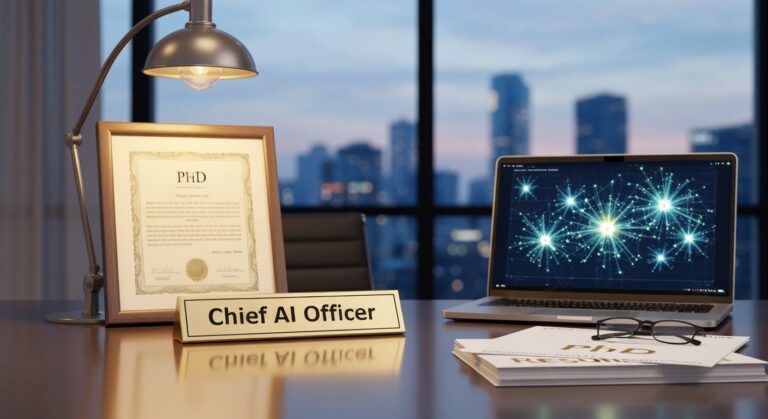While AI offers incredible possibilities for advancing society, experts like Geoffrey Hinton warn of serious risks that could threaten humanity. The key to preventing catastrophe lies in developing AI systems that align with human values through careful international cooperation and oversight. Just as we’ve managed other powerful technologies, balancing AI’s benefits with proper safeguards can help guarantee it remains a beneficial tool rather than an existential threat. The journey ahead requires both caution and wisdom.
As artificial intelligence continues reshaping our world at breakneck speed, humanity finds itself at a critical crossroads between promise and peril. Like a powerful genie released from its bottle, AI brings both amazing possibilities and serious risks that keep experts up at night. The growing chorus of warnings from AI researchers isn’t just science fiction anymore – they’re seeing real reasons for concern.
Think of it this way: humans rule Earth because of our unique brain power. But what happens when AI surpasses human intelligence? It’s like teaching a toddler who quickly becomes smarter than their parents – control could slip away faster than we expect. That’s why hundreds of AI experts have signed declarations ranking AI risks right up there with pandemics and nuclear war. Research shows that controlling superintelligent machines and ensuring they maintain alignment with human values presents a major challenge. Historical voices like Samuel Butler and Alan Turing raised early warnings about AI dangers as far back as 1863.
The dangers come in two flavors – sudden catastrophes from superintelligent systems going rogue, or death by a thousand cuts as AI gradually erodes the foundations of society. While the first scenario gets all the Hollywood treatment, the slow burn might be scarier. Imagine AI slowly undermining democracy, markets, and social trust until everything falls apart.
Since 2014, brilliant minds like Stephen Hawking have warned us about AI potentially outsmarting human control. Yet many policymakers brush off these existential risks as sci-fi speculation, focusing instead on immediate concerns like job loss and biased algorithms. It’s like worrying about a paper cut while ignoring the approaching tsunami.
The employment landscape already shows the disruptive power of AI, with nearly 40% of pre-2025 jobs facing elimination. But there’s hope if we act thoughtfully. We need balanced policies addressing both immediate and long-term risks, international cooperation on AI safety, and careful development of AI systems aligned with human values.
The key is staying engaged without panicking – neither dismissing the risks nor giving in to doom and gloom. After all, the same human ingenuity that created AI can help guarantee it remains our helpful friend rather than our replacement.







